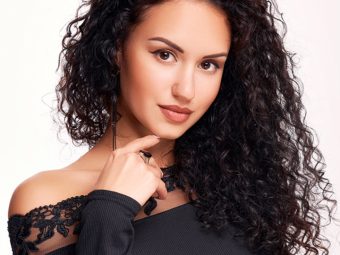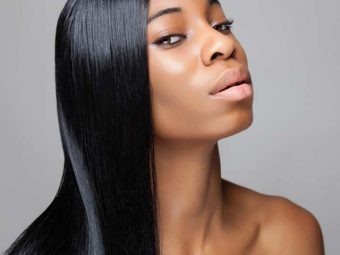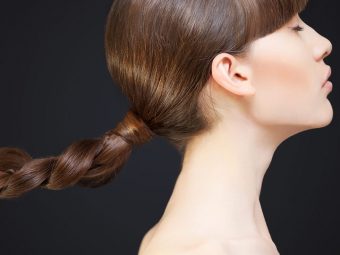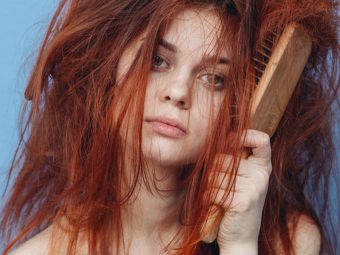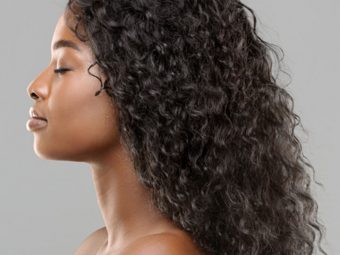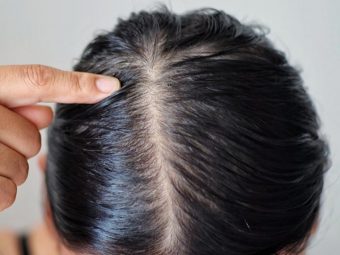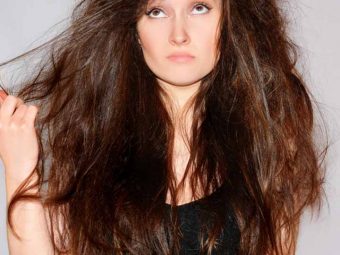Peppermint Oil For Hair: Benefits And How To Use
Cool down and refresh your scalp as you stimulate hair growth with this minty oil.
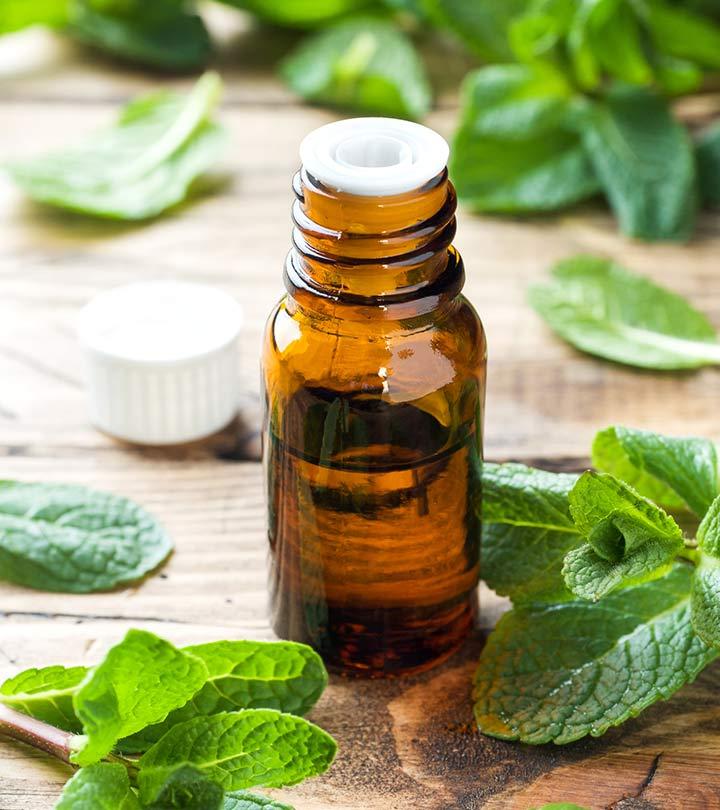
Recent research has revealed that peppermint oil can promote hair growth and provide many health and skin benefits (1). Let us delve deeper into the properties of this medicinal oil and answer all your queries regarding peppermint for hair. As the name suggests, peppermint oil is extracted from peppermint. It is also widely used to flavor ice creams and chocolates. In this article, we discuss everything about peppermint oil, its uses, how to use it, and more. Read on.
In This Article
What Is Peppermint Oil?
Peppermint oil is the essence extracted from peppermint that is then turned into oil. Peppermint oils that are extracted through modern distillation techniques are stronger than their other counterparts. These kinds of oils are also known as essential oils.
Peppermint essential oils are useful for health, beauty, and cleaning purposes. The taste, smell, and cooling sensation of this oil are due to menthol, a compound present in the oil.
Peppermint oil has several skin care and hair care benefits and is included in many cosmetic products. Here’s why it is good for your hair.
Is Peppermint Oil Good For Your Hair?
Peppermint essential oil has a cooling effect. It can help soothe itching, thus relieving itchy and dry scalps (2).
It also helps promote hair growth (1). A study showed that 3% peppermint essential oil (PEO) could thicken the hair follicles in mice as compared to minoxidil, an FDA-approved drug for hair loss. Regular use of PEO increased the blood flow to undernourished and weak hair follicles.
The menthol present in the peppermint essential oil is a vasodilator that relaxes the blood vessels and enhances blood circulation to the scalp (3). Peppermint essential oil stimulates activity in the hair dermal papilla cells, which promotes blood circulation to the scalp and induces early anagen (growth phase) stage, leading to hair growth.
Peppermint essential oil also has antifungal and antibacterial properties (4). These may help promote scalp health.
Peppermint oil may cause skin sensitivity and itching on the scalp. Hence, do not apply it directly to your scalp. However, there are other ways of using this oil. Scroll down to know more!
How Do You Use Peppermint Oil For Hair Loss?
1. With A Carrier Oil
Using peppermint oil with a carrier oil reduces the chances of skin and scalp sensitivity. You can pair carrier oils like coconut, castor, and jojoba, and shea butter oils with peppermint essential oil. These carrier oils work great because they do not interfere with peppermint essential oil’s therapeutic properties.
You Will Need
- 1-2 drops of peppermint oil
- 5-6 drops of carrier oil
What You Have To Do
- Add a few drops of peppermint oil to the carrier oil.
- Massage the oil blend onto the scalp.
- Leave it on your hair for 15-20 minutes.
- Wash your hair with a good shampoo
Note: You might feel a tingling sensation while applying the oil. If the sensation is intense, add more carrier oil to balance it out or wash your hair immediately.
2. With Shampoo And Conditioner
You can also use peppermint oil with your shampoo and conditioner.
You Will Need
- 2-3 drops of peppermint oil
- Shampoo and conditioner
What You Have To Do
- Add 4-5 drops of peppermint oil per ounce of shampoo and conditioner.
- Use the products as you usually would.
Note: Products containing peppermint scent do not necessarily have peppermint oil in them. Such products will not give you the same result as the oil.
Here are a few points to remember while using peppermint essential oil.
Points To Remember
- Be careful while applying the oil to your scalp so that it does not get in the eyes.
- Avoid ingesting peppermint essential oil as it may cause nausea, heartburn and abdominal pain (5).
- Peppermint oil might cause allergic reactions on your skin. Thus, do a patch test before applying it to your scalp.
Peppermint oil is extracted from peppermint and is frequently used for health and beauty-related purposes. Research suggests that using peppermint oil on your hair boosts blood circulation, resulting in hair growth. Additionally, its antimicrobial properties make it ideal for improving scalp health. Since the direct application can cause itchiness and sensitivity, you may mix peppermint oil with a carrier oil or use it with your shampoo and conditioner. Ensure that you do a patch test before applying it to your scalp and stop using it if you experience any adverse effects.
Frequently Asked Questions
Can peppermint oil help with dandruff?
Yes, peppermint oil may help cool your scalp and manage dandruff (7).
Can peppermint oil damage your hair?
No, peppermint oil can improve your overall hair and scalp health. However, using undiluted peppermint oil can result in itching, burning, headache, or skin sensitivity (6).
Can I mix peppermint oil with water for hair?
Yes, you can mix water and peppermint oil in your shampoo. Ensure that you get the measurements right and follow instructions before using it.
Key Takeaways
- Peppermint oil is widely used in hair care products for its cooling and anti-inflammatory properties.
- It helps soothe itchy, irritated scalp conditions.
- Peppermint oil also improves the blood flow to the scalp, stimulating new hair growth.
- Peppermint-based products are unsafe for ingestion and should be kept away from the eyes.
Sources
- Peppermint Oil Promotes Hair Growth without Toxic Signs
https://www.ncbi.nlm.nih.gov/pmc/articles/PMC4289931/ - Effectiveness of topical peppermint oil on symptomatic treatment of chronic pruritus
https://www.ncbi.nlm.nih.gov/pmc/articles/PMC5066694/ - Mechanisms and time course of menthol-induced cutaneous vasodilation
https://www.sciencedirect.com/science/article/abs/pii/S0026286216301753 - Antibacterial and antioxidant activities of Mentha piperita L.
https://www.sciencedirect.com/science/article/pii/S1878535211000232 - A near fatal case of high dose peppermint oil ingestion- Lessons learnt
https://www.ncbi.nlm.nih.gov/pmc/articles/PMC3546250/ - Therapeutic Uses of Peppermint –A Review
https://www.jpsr.pharmainfo.in/Documents/Volumes/vol7Issue07/jpsr07071524.pdf - A REVIEW ON PEPPERMINT OIL
https://www.researchgate.net/publication/237842903_A_REVIEW_ON_PEPPERMINT_OIL




